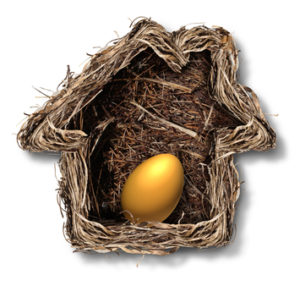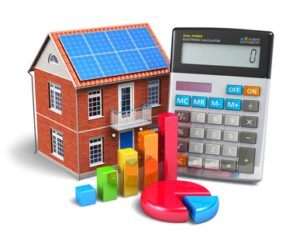10 Ways to Build Equity in Your Home

 1. Rising home prices – when home prices rise, you will gain equity simply because your home will be worth more. For example, if your home is currently worth $250,000, if it rises to $300,000 in five years, you’ll have $50,000 more equity. Unfortunately, the opposite can also occur.
1. Rising home prices – when home prices rise, you will gain equity simply because your home will be worth more. For example, if your home is currently worth $250,000, if it rises to $300,000 in five years, you’ll have $50,000 more equity. Unfortunately, the opposite can also occur.
2. Falling mortgage balance – as you pay off your mortgage each month, you pay a portion of interest and a portion of principal (assuming it’s not an interest-only home loan). Every time you make your mortgage payment you’ll gain some home equity.
3. Larger mortgage payments – if you make larger payments each month, with the extra portion going toward principal, you will pay off your mortgage faster and gain home equity a lot quicker. (Stop to consider your long-term investment goals before doing this. Oftentimes, if you put your money into a different investment vehicle like a mutual fund, you would receive larger returns from the mutual fund than you would from putting more money toward your mortgage.)
4. Biweekly mortgage payments – you can go with a biweekly mortgage payment, where you make 26 payments throughout the year. This will shave down your mortgage term, save you a ton in interest, and help you build home equity a lot faster.
5. Shorten your mortgage term – you can refinance into a shorter-term mortgage with a lower mortgage rate, such as a 15-year fixed, which will increase the size of your payments, but build equity much faster than a traditional 30-year mortgage.
6. Avoid refinancing – conversely, if you don’t refinance and pull cash out, you’ll retain all the equity in your home. During home value growth periods, many homeowners refinanced over and over until they sucked their equity dry – then when prices drop, as they tend to with any market, these homeowners found themselves upside down on their mortgages.
7. Home improvements – if you make smart home improvements, where the expected value exceeds the cost, you’ll increase your home equity by having a home that’s worth more. While it’s seemingly completely played out, granite countertops and stainless steel appliances still draw buyers in, and you can sell for more. Or if you like to go the Conscious Group route – eco-friendly home upgrades can build equity, save you money on your energy bills, and make your home more attractive to future buyers.
8. Maintenance – keep your home in tip-top shape and you will be rewarded when it comes time to sell. If you can unload it for more as a result, you’ve essentially created more equity in your home.
9. Curb appeal – same goes for staging. Make your home look good when you list it and there’s a better chance it’ll sell, and sell for more. Simple things can make a big difference, such as new paint, carpet, bright lighting, cleanliness, plants, flowers, etc.
10. Bigger down payment – you can make a larger down payment when you purchase your home to automatically acquire home equity. While this may seem like you’re putting money in an illiquid investment, more equity means a lower loan-to-value ratio, which equates to a lower interest rate and easier-to-obtain financing. Over time, that lower rate will mean less interest paid and more equity accrued.
If you’re ready to refinance, Conscious Real Estate works with a great lender we can recommend, so give us a call!















